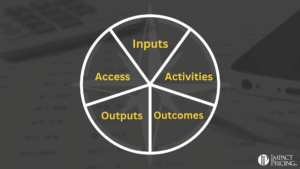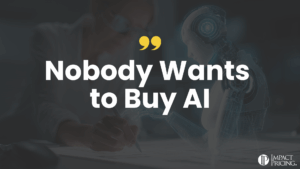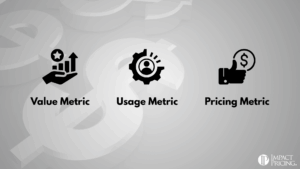I work in a bank and we’re trying to figure out how to price discounts when clients buy an additional product (loan, mortgage, credit card, deposit). We’re trying to argue some discounts through computations of customer lifetime value (better future retention, cross-sell, lower risk), but it is not easy to do. Measurement of selling in the moment is so much easier than the measurement of relationships in time. Could you share your vision on this idea of giving discounts on subsequent products? Thank you in advance, I will keep following your writings closely. Kind regards, J.
Answer: Hi J. First, thank you for letting me know you get value from our posts. Knowing we’re helping people makes this worthwhile.
You have correctly identified the dilemma. My favorite sentence in your question is this one: “Measurement of selling in the moment is so much easier than measurement of relationships in time.” I don’t know if you use salespeople, but that’s often the excuse we hear when they ask for a discount. “The relationship will be stronger and they will buy more.” Ugh. It so rarely happens.
However, let’s think about a process you could use to determine the best decision in your case.
You might start by looking at historical data. Since your goal is longevity, grab a cohort of clients that all started at about the same time, say 5 years ago. Now, look at the ones who left and the ones who stayed. Was there discounting involved in keeping the one who stayed? Were they the ones who used more of your services? You can use historical data to get a feel for the answer.
Next, you might talk with some of those customers. Some who stayed and some who left. Why did they make that decision? I’m guessing price didn’t drive their decisions, but you want to hear from them. The ones who left probably did so because of a service issue. If you hear price as the reason and you believe it, then you might want to create a plan for volume discounts.
Finally, ask why do you think people buy multiple products from you? I doubt it’s the price. It’s probably either the relationship you have built satisfies or even delights them, or it’s because they find it easier to deal with one vendor instead of multiple vendors. If it’s the former, offering a small volume discount to reward their loyalty is not a bad idea. Keep them loyal and keep providing service. If it’s the latter, the discount is wasted … unless of course, your competitors offer multi-product discounts. Then you are competing with other banks on a bundle of packages.
The solution to your question is not trivial. The best answer is to create some hypotheses as to why customers buy, stay and leave. Then try to find data to test these hypotheses. That will inform how you should handle the pricing.
**Note: Mark Stiving has an active LinkedIn community, where he participates in conversations and answers questions. Each week, he creates a blog post for the top question. If you have a question, head over to LinkedIn to communicate directly with Mark.














